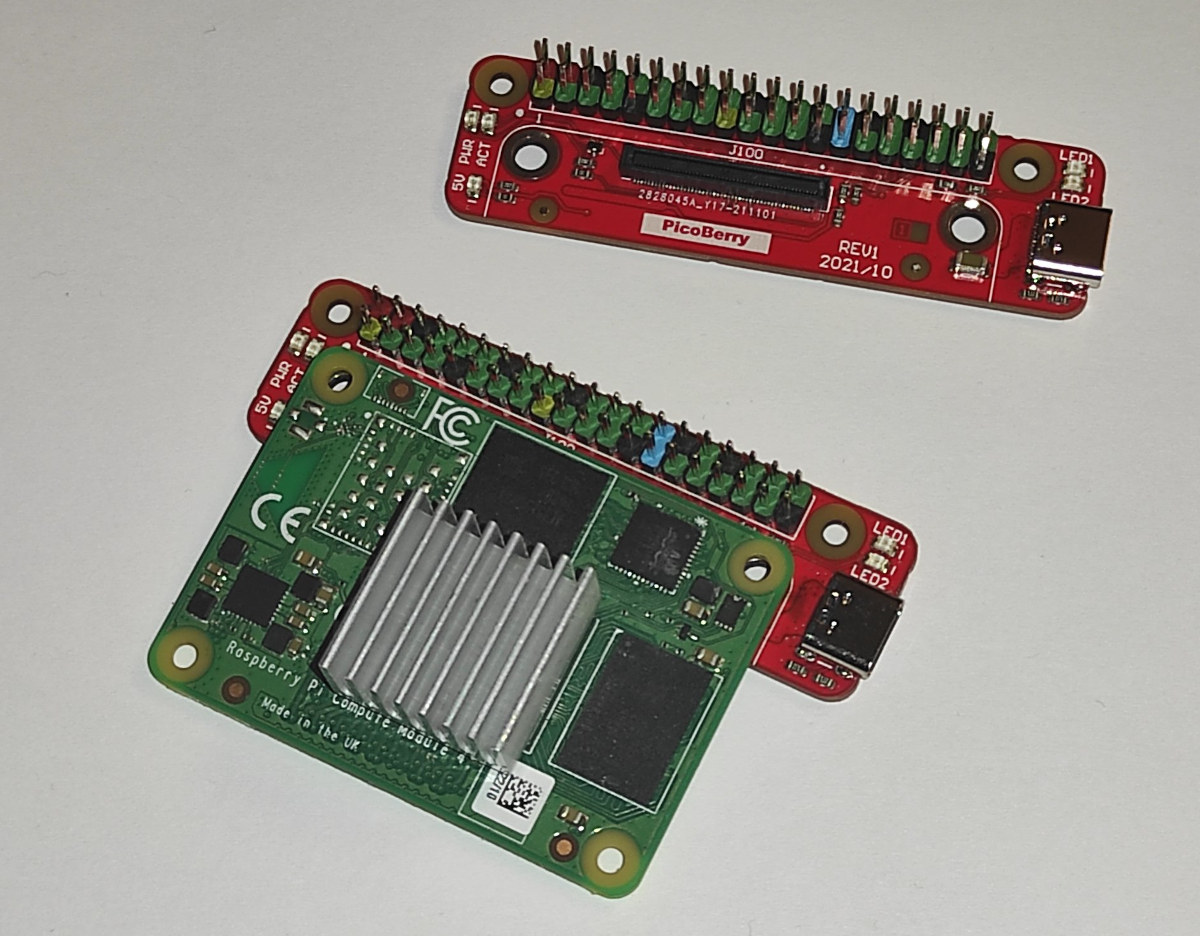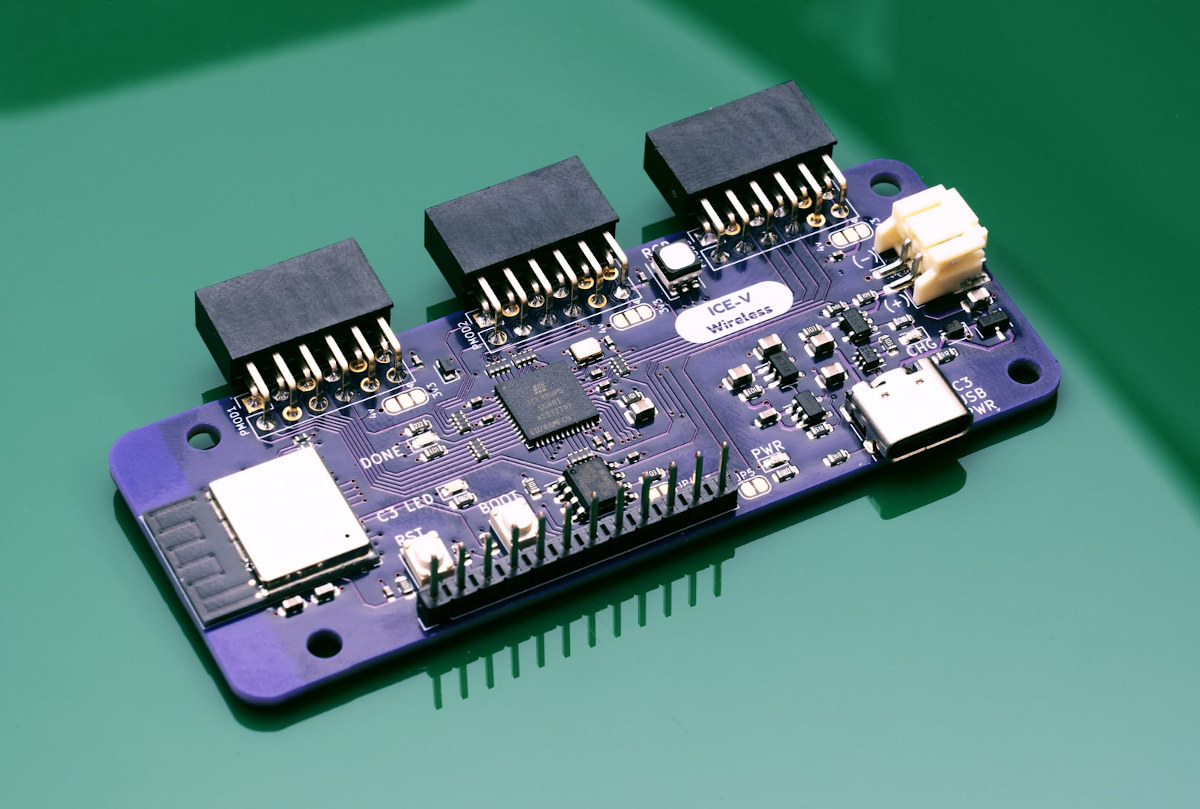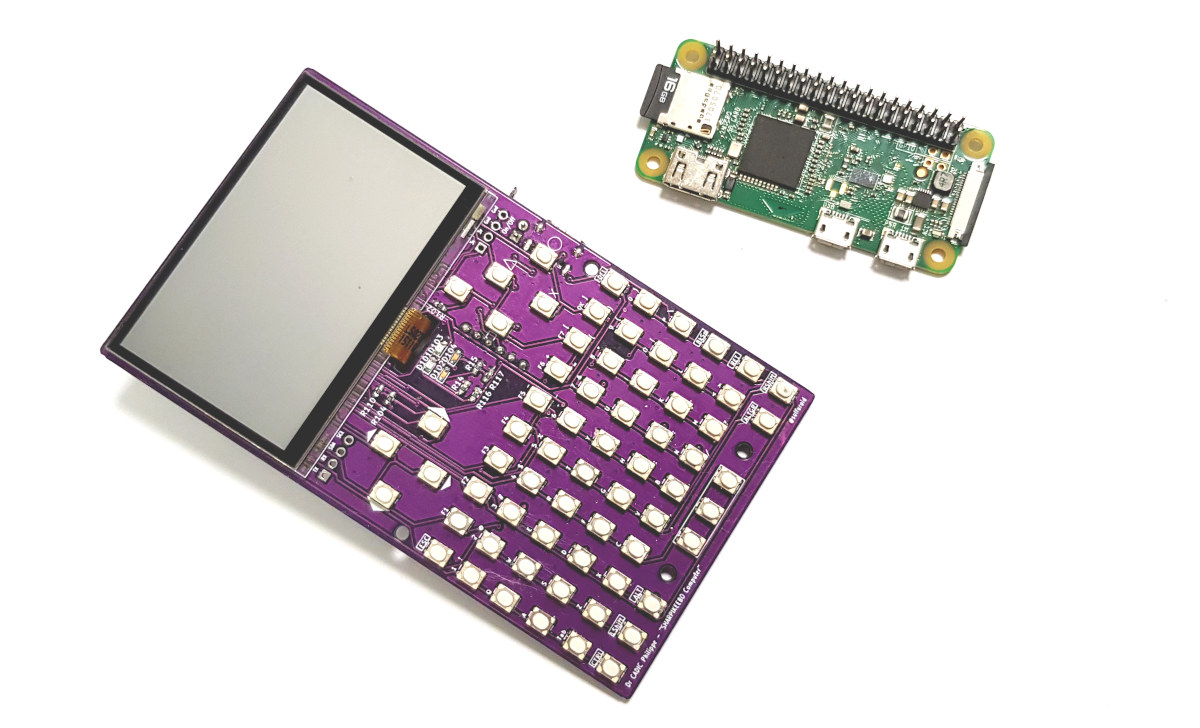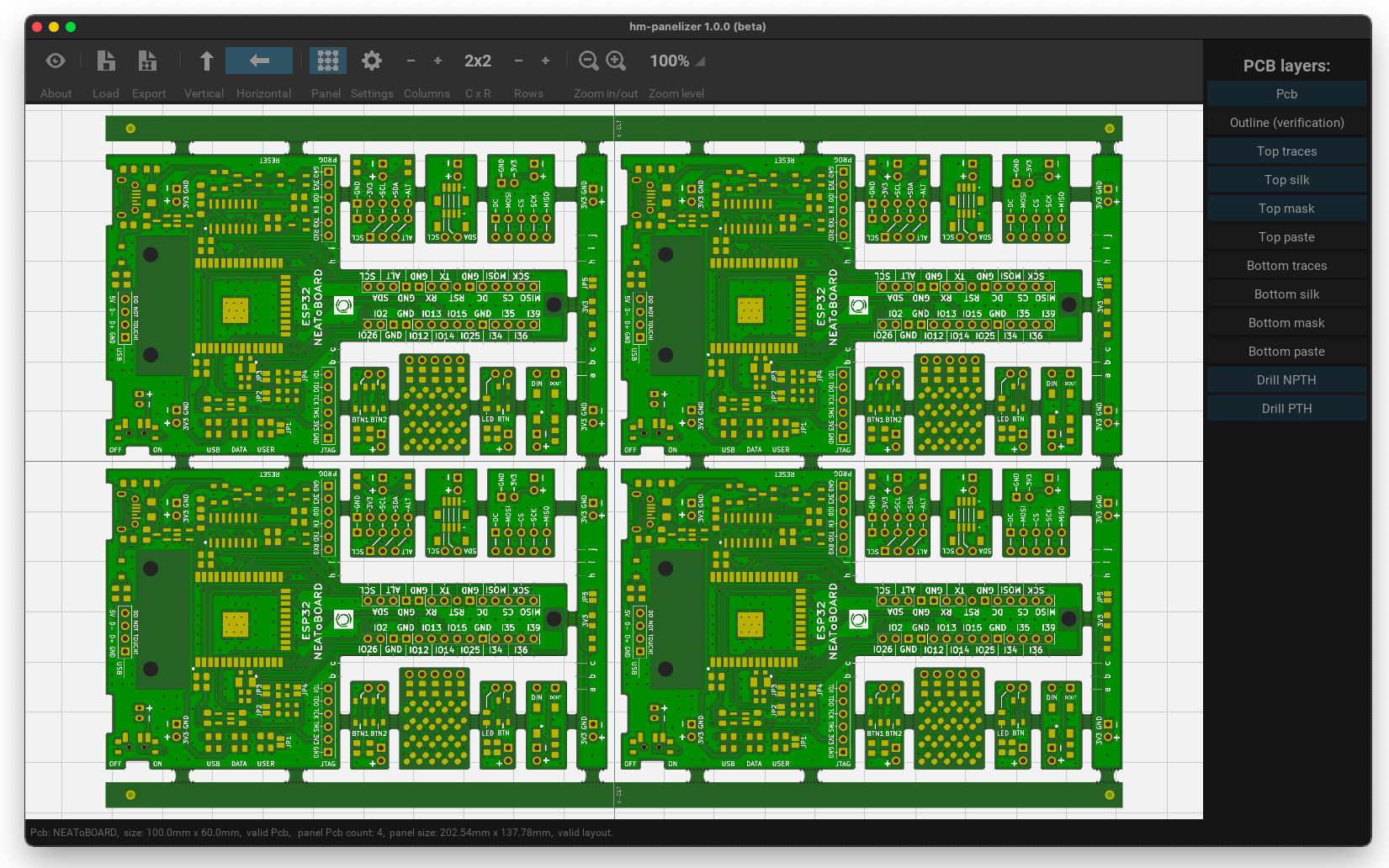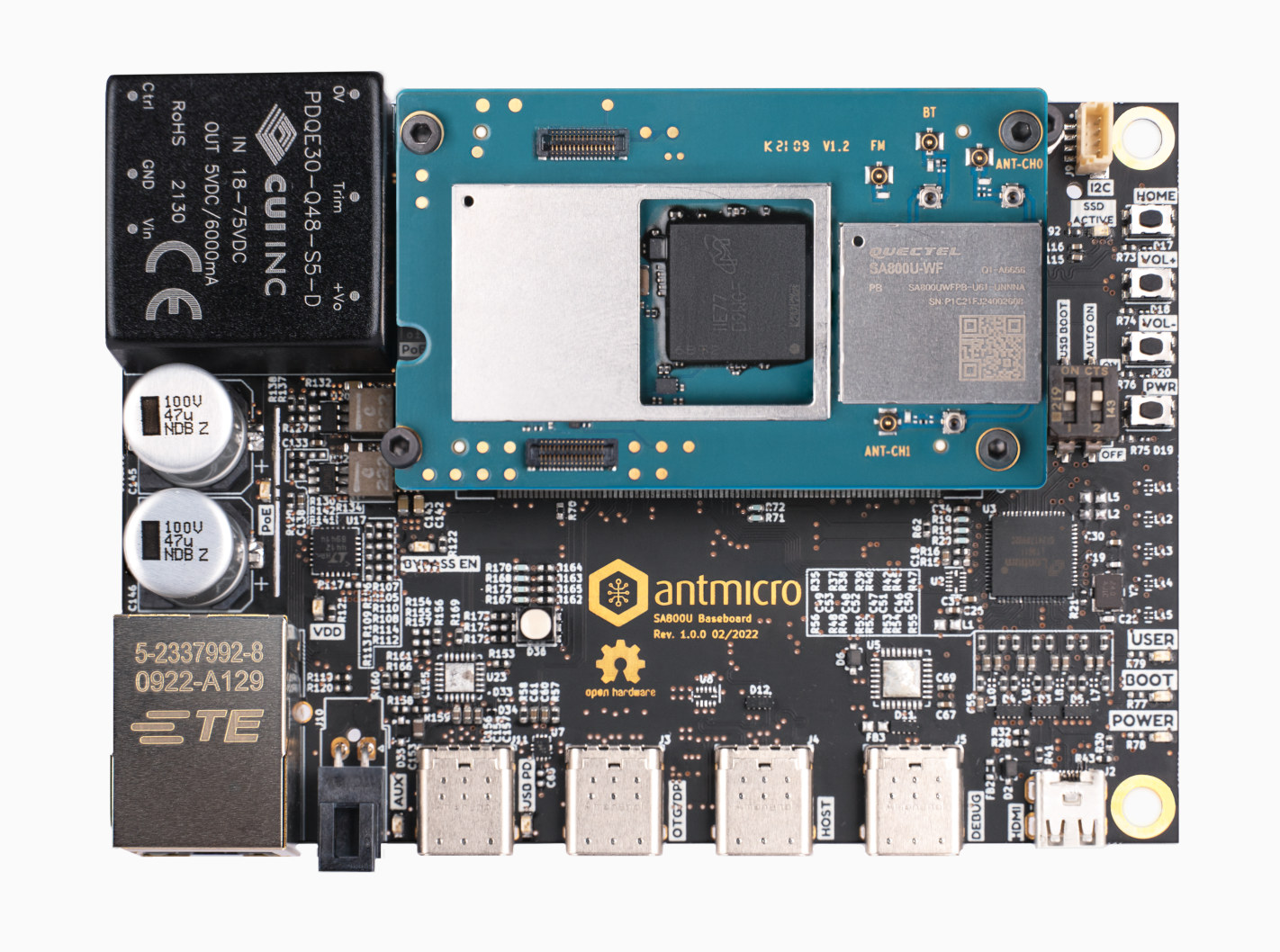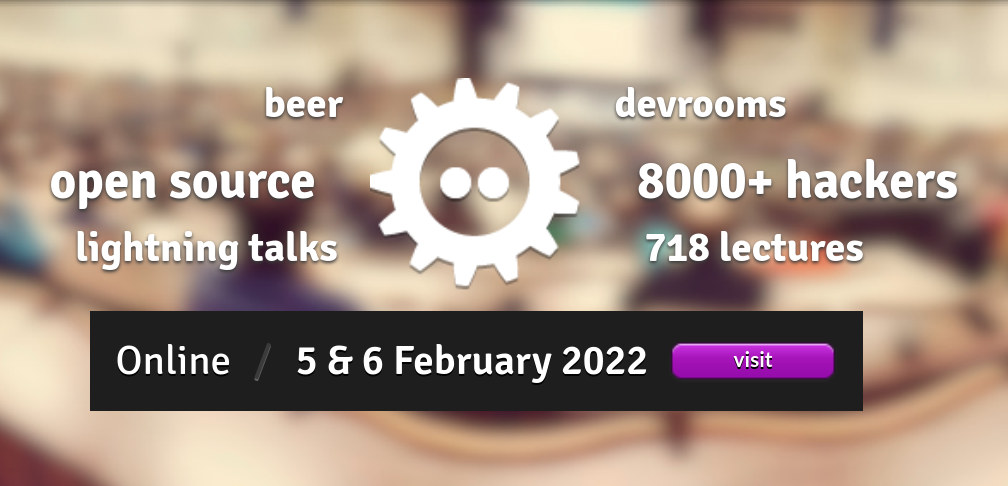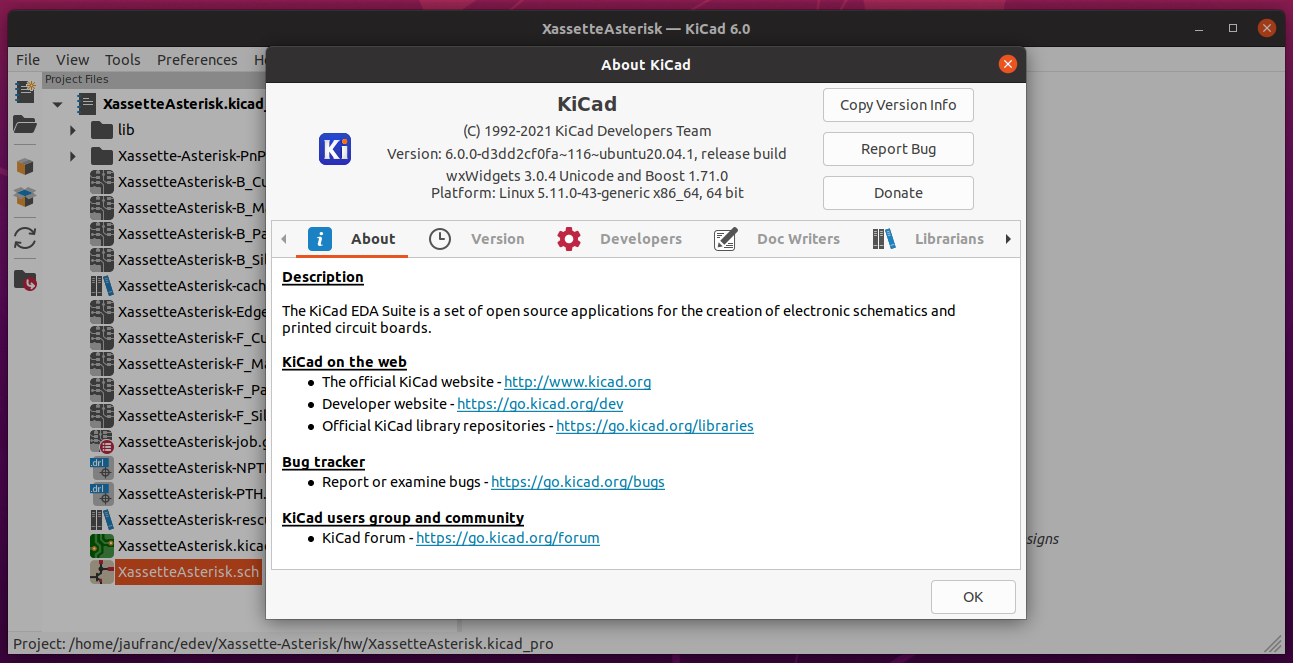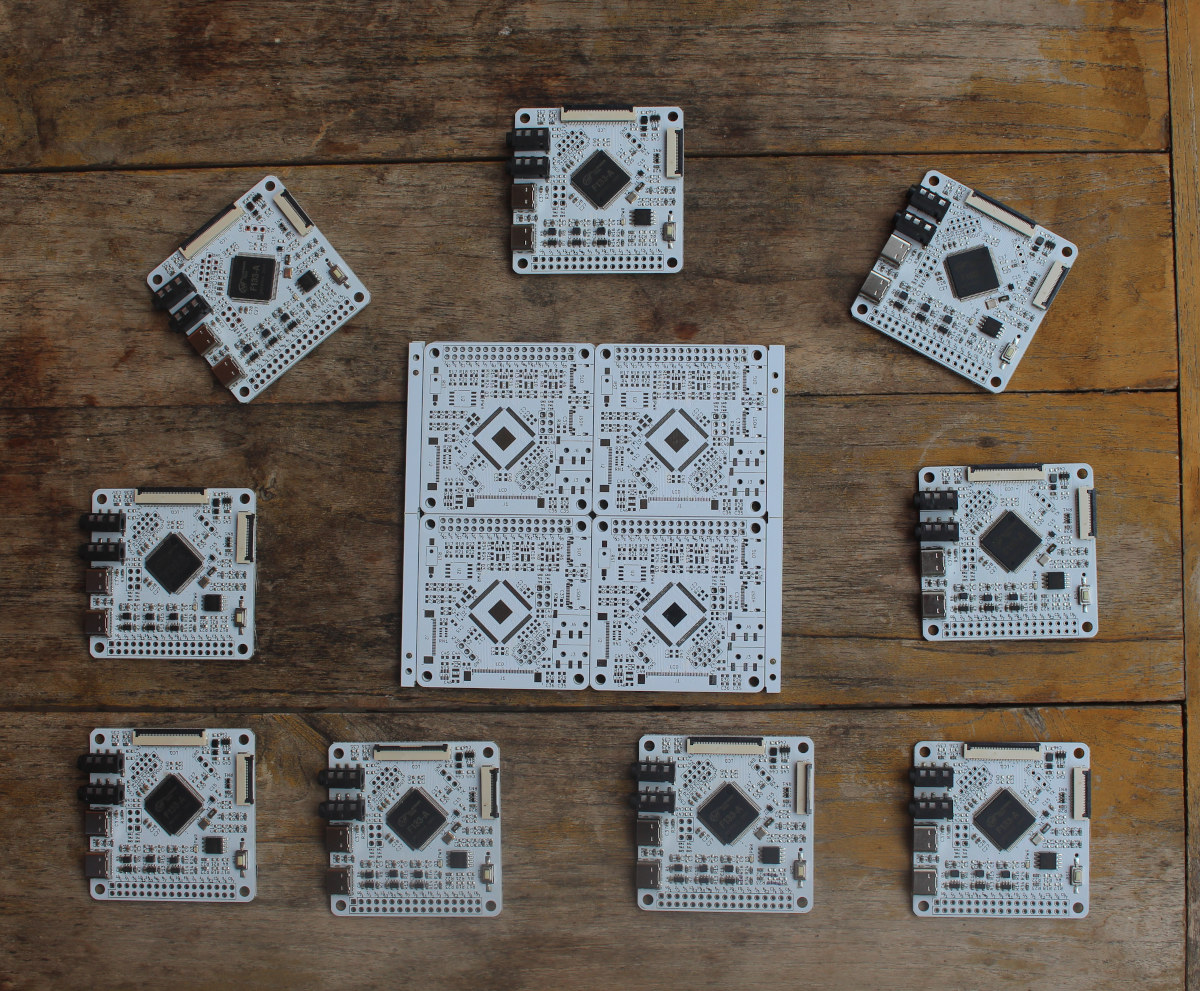Mirek Folejewski’s (aka Mirko Electronics) PicoBerry is an open-source hardware, miniature Raspberry Pi CM4 carrier board with just a USB Type-C port for power, a 40-pin Raspberry Pi GPIO header, and barely anything else. At just 70x20mm, the 2-layer board only adds a few LEDs, namely the ACT/PWR LEDS and two user LEDs, and supports any Raspberry Pi CM4 module with eMMC flash, but not the Raspberry Pi CM4 Lite since the board does not include a microSD card slot. PicoBerry specifications: Supported system-on-modules – Raspberry Pi CM4 with eMMC flash, and possibly compatible SoMs such as Radxa CM5 or Pine64 SoQuartz64 USB – USB Type-C for power Expansion – 40-pin GPIO header with the same layout as on Raspberry Pi 4 or other Pi boards with a 40-pin header Misc – ACT/PWR LEDs, 2x user LEDs (green.red) Power Supply – 5V DC/3A via USB-C port, Dimensions – 70x20mm (2-layer […]
ICE-V Wireless FPGA board combines Lattice Semi iCE40 UltraPlus with WiFi & BLE module
Lattice Semi ICE40 boards are pretty popular notably thanks to the availability of open-source tools. ICE-V Wireless is another ICE40 UltraPlus FPGA board that also adds wireless support through an ESP32-C3-MINI-1 module with WiFi 4 and Bluetooth LE connectivity. Designed by QWERTY Embedded Design, the board also comes with 8MB PSRAM, offers three PMOD expansion connectors, plus a header for GPIOs, and supports power from USB or a LiPo battery (charging circuit included). ICE-V Wireless specifications: FPGA – Lattice Semi ICE40UP5K-SG48 FPGA with 5280 LUTs, 120 Kbits EBR RAM, 1024 Kbits PSRAM External RAM – 8MB PSRAM Wireless – ESP32-C3-MINI-1 module with 2.4 GHz WiFi 4 and Bluetooth LE through ESP32-C3 RISC-V processor, 4MB flash. USB – 1x USB Type-C port for power, programming, and JTAG debugging of the ESP32-C3 module Expansions 3x PMOD connectors connected to the FPGA I/O connector with 7x ESP32-C3 GPIO lines (serial, ADC, I2C) and […]
ShaRPiKeebo handheld Linux computer based on Raspberry Pi Zero (2) W ships with a LoRa radio (Crowdfunding)
Morpheans ShaRPiKeebo is a portable Linux computer based on Raspberry Pi Zero W or Zero 2 W SBC that reminds me of the Allwinner R8 powered PocketCHIP handheld computer that was introduced in 2016, and was quite popular (for a niche product) at the time. The ShaRPiKeebo comes with a physical QWERTY keyboard, a daylight-readable screen, and Wi-Fi & Bluetooth connectivity, but also adds a 433 MHz LoRa radio that should make it usable as an off-the-grid communicator. Just like PocketCHIP, the ShaRPiKeebo can be used for system administration, retro-gaming, pen testing, STEM education, and all sort of maker projects. ShaRPiKeebo specifications: Supported SBCs via 40-pin GPIO header – Raspberry Pi Zero W, Raspberry Pi Zero 2 W, and (maybe) compatible SBCs like Radxa Zero or Banana Pi M2 Zero Display – 2.7- inch SHARP memory display (LS027B7DH01) with 400×240 resolution, low-latency, low-power Connectivity 802.11 b/g/n WiFi 4, Bluetooth 4.2 […]
hm-panelizer – A KiCad companion GUI tool for panelizing PCBs
Gerard (aka halfmarble) has released hm-panelizer open-source software allowing for a panelization of PCBs via a simple GUI interface and doubling as a Gerber file viewer. He’s mostly tested it with PCBs designed in KiCad 6.x, but it should also work with design files from other tools. Note that hm-panelizer is just a side project, and Gerard released it as an open-source project in hopes that it might be useful to users and the community will contribute to it. The project relies on kivy cross-platform library, pygame and pycairo libraries, as well as pcb-tools and pcb-tools-extension projects. There are some requirements for the utility to work on with your PCB : Use the metric system The PCB Gerber files must use Altium/Protel filename extensions The board outline gerber file (.gm1) must be present “Disable aperture macros” when exporting Gerber files (this may not be needed for simple designs and only […]
Antmicro releases open-source hardware Snapdragon 845 baseboard designed with KiCad
Antmicro team has released an open-source hardware baseboard for Quectel SA800U-WF System-on-Module powered by Qualcomm Snapdragon 845 octa-core processor, which they designed with KiCad open-source EDA tool. The baseboard supports NVMe storage and offers Micro HDMI and MIPI DSI video interfaces, Gigabit Ethernet with PoE support, USB 3.1 Type-C interfaces, and other I/Os, plus three separate power inputs. The company expects the design to serve as a starting point for building portable smart assistants, kiosks, VR/AR or smart screens, and more. Antmicro Snapdragon 845 baseboard specifications: Supported system-on-module – Quectel SA800U-WF with: SoC – Qualcomm Snapdragon 845 octa-core Kryo 385 processor (4x Cortex A75 cores + 4x Cortex-A55 cores), Adreno 630 GPU, Hexagon 685 DSP, 4K H.265/H.264 video decoding and encoding System Memory – 4 GB LPDDR4X Storage – 64 GB UFS storage 802.11b/g/n/ac Wi-Fi 5 2×2 MIMO and Bluetooth 5.0 module Board-to-board connector for connection to baseboard Dimensions – […]
FOSDEM 2022 schedule with embedded Linux, IoT, automotive… sessions
While typically taking place in Brussels, Belgium, FOSDEM 2022 will take place online just like FOSDEM 2021 due to COVID-19 restrictions. The good news is that it means anybody can attend it live from anywhere in the world, and makes it more like “FOSDIM”, replacing European with International, in “Free and Open Source Developers’ European Meeting”. FOSDEM 2022 will take place on February 5-6 with 637 speakers, 718 events, and 103 tracks. I’ve made my own little virtual schedule below mostly with sessions from the Embedded, Mobile and Automotive devroom, but also other devrooms including “Computer Aided Modeling and Design”, “FOSS on Mobile Devices”, “Libre-Open VLSI and FPGA”, and others. Saturday, February 5, 2022 12:30 – 13:00 – Five mysteries in Embedded Linux by Josef Holzmayr Once you start out in embedded Linux, there is a lot to do. Some things are obvious, some less so. First and foremost, […]
KiCad 6.0.0 released with revamped user interface, thousands of changes
It took around 3.5 years of development to release KiCad 6.0.0 open-source EDA suite, as the previous major release, KiCad 5.0.0, was introduced in July 2018. KiCad 6.0.0 comes with a refreshed user interface that’s supposed to reduce the barriers of entry for new users and users switching from other design software with notably the schematic and PCB editors now feeling like being from the same program instead of completely different tools. As noted by the developers, it’s difficult to summarize all the changes because of the thousands of updates made between KiCad 5 and KiCad 6, but here are some highlights: Revamped schematic editing with the object selection and manipulation paradigm as the PCB editor, and several new features such as net classes, one-click wire start, intersheet references Brand-new schematic and symbol library file format allowing embedded symbols Redesign of the PCB design tool with new options such as […]
Manufacturing samples of Xassette-Asterisk open-source hardware board
We covered Xassette-Asterisk open source-hardware Allwinner D1s RISC-V Linux SBC last October. But it will most likely never be mass-manufactured since SdtElectronics, the designer, has no resources and time for production. So I thought I should give it a try, and I managed to get 10 boards manufactured and assembled. Time for a little disclaimer. While the post is not sponsored in the sense I did not get paid for it, NextPCB agreed to cover all costs, aka sponsor, and manufacture ten boards. Today, I’ll report my experience manufacturing an open-source hardware board, but I had no time to check whether any of the boards worked. Manufacturing timeline Since I did not want to go through the whole process of ordering the PCB, purchasing the components, and soldering each board individually, I opted for NextPCB’s PCB manufacturing and assembly services. Here’s the detailed timeline: November 9 – Ordered 10 boards […]


